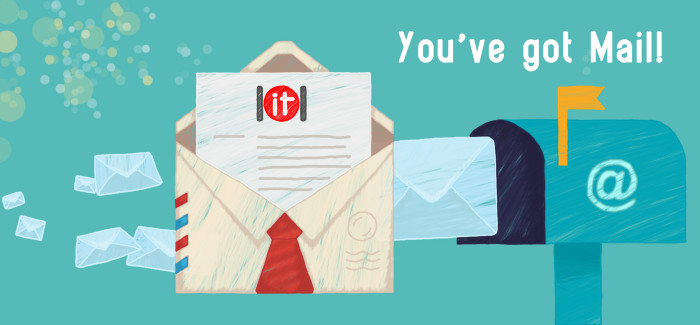7 Strategies to Write Professional Emails

- CEO
- On June 10, 2015
- http://www.101itconsult.com
Writing a clear subject, using a professional email address and scarce use of humor are some of the most important rules of email communication.
It is clear to understand why email is the most popular communication method among companies nowadays. Smartphones and tablets allow sending and reading email from everywhere. It’s a practical manner that eliminates the risk of interrupting your recipient, such being the case when calling or texting. Here are 7 tips on how to write your collaborators or managers:
1. Write clear the subject of the message.
A good headline for the email subject may sound like this: “Rescheduled meeting”; “Short question about the presentation” or “Suggestions for your proposal”. It has been observed that often, people decide to open an email strictly considering the email headline. Therefore, let your addressees know that you’re writing about specific work matters.
2. Use a professional email address.
When you work for a company, it’s prime to use the business email address that the company made for you. However, if you decide to use your personal email address, pay attention to the structure. It’s mandatory to have an email address that chimes in with your name, so your recipient knows exactly who the sender is. Addresses such as “diva92@…” are understandably strictly forbidden. Moreover, addresses that contain nicknames or questionable appellations are also to be avoided, because they suggest that the sender is a completely nonprofessional person.
3. Think twice before clicking “Reply to All”.
Nobody wants to read emails from 20 persons when the matter has nothing to do with him/her. In this situation, the addressee could simply ignore the emails, but many of them receive notifications on phone or pop-up messages on computers, whenever they have new emails. Abstain from clicking “Reply to All” and do this only when you are sure everyone in the list really needs to read the email.
4. Use the exclamation mark sparingly.
If you use the exclamation mark, make sure it is only for rendering exaltation or emotion. Some people have the tendency to let themselves carried away when they write and use numerous exclamation marks at the end of their sentences. This style of writing denotes the incapability of controlling emotions or even immaturity. Therefore, use the exclamation mark wisely.
5. Use humor with caution.
Humor can be easily lost in an email text, in the absence of facial expressions or right voice tone that sustains the message. In a professional exchange, it’s wiser to leave humor aside, especially if you’re not close to the recipient. Moreover, consider that a situation that is funny to you can be seen different by other people. Keep in mind that a remark perceived funny while talking can turn out completely different in writing. If you are not sure about an expression or fact that seems hilarious to you, better not write it.
6. Pay attention to intercultural communication.
Communication issues often appear due to cultural distinctions, amplified sometimes by writing which lacks body language and mimics. Hence, it’s essential to adapt your message as well as you can to the cultural background of your receiver.
7. Reply to emails, even if you are not the main recipient.
It’s demanding to reply to every email you receive, but you should give it a try. Responding id not mandatory, but it shows good work ethics regarding communication, specifically if the sender works in the same company or field like you.

Submit a Comment